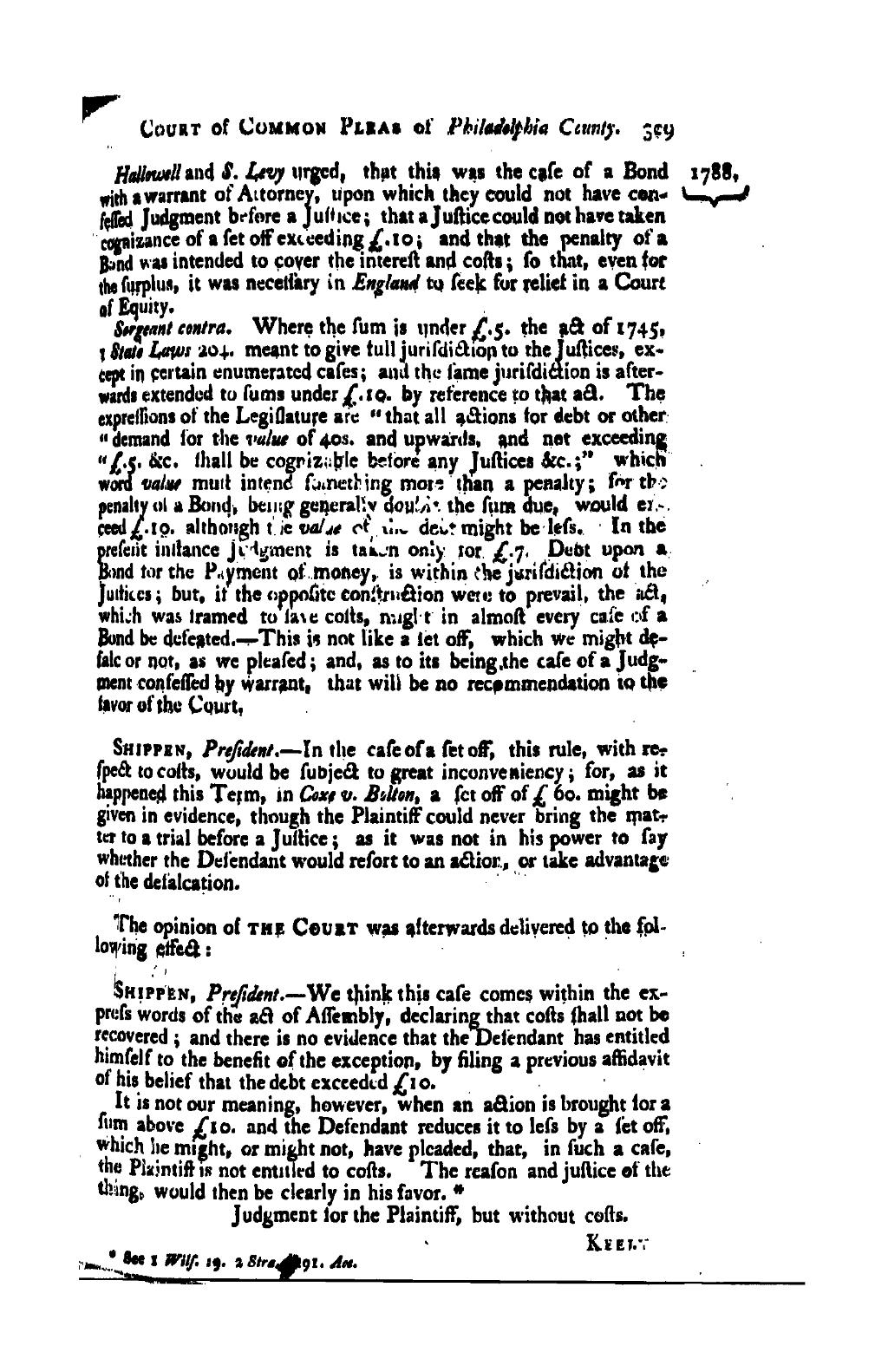1788.
Hallowell and S. Levy urged, that this was the case of a Bond with a warrant of Attorney, upon which the could not have confessed Judgment before a Justice; that a Justice could not have taken cognizance of a set off exceeding £.10; and that the penalty of a Bond was intended to cover the interest and costs; so that, even for the surplus, it was necessary in England to seek for relief in a Court of Equity.
Sergeant contra. Where the sum is under £.5. the act of 1745, 1 State Laws 204 meant to give full jurisdiction to the Justices, except in certain enumerated cases; and the fame jurisdiction is afterwards extended to fums under £10 by reference to that act. The expressions of the Legislature are "that all actions for debt or other demand for the value of 40s. and upwards, and not exceeding £.5. &c. shall be cognizable before any Justices &c.;" which word value must intend something more than a penalty; for the penalty of a Bond, being generally double the sum due, would exceed £.10. although the value of the debt might be less. In the present instance Judgment is taken only for £.7. Debt upon a Bond for the Payment of money, is within the jurisdiction of the Justices; but, if the opposite construction were to prevail, the act, which was frame to save costs, might in almost every case of a Bond be defeated.—This is not like a set off, which we might defalc or not, as we pleased; and, as to is being the case of a Judgment confessed by warrant, that will be no recommendation to the favor of the Court.
Shippen, President.—In the case of a set off, this rule, with respect to costs, would be subject to great incoveniency; for, as it happened this Term, in Coxe v. Bolton, a set off of £ 60. might be given in evidence, though the Plaintiff could never bring the matter to a trial before a Justice; as it was not in his power to fay whether the Defendant would resort to an action, or take advantage of the defalcation.
The opinion of the Court was afterwards delivered to the following effect:
Shippen, President.—We think this case comes within the express words of the act of Assembly, declaring that costs shall not be recovered; and there is no evidence that the Defendant has entitled himself to the benefit of the exception, by filing a previous affidavit of his belief that the debt exceed £10.
It is not our meaning, however, when an action is brought for a sum above £10. and the Defendant reduces it to less by a set off, which he might, or might not, have pleaded, that, in such a case, the Plaintiff is not entitled to costs. The reason and justice of the thing, would then be clearly in his favor.[1]
Judgment for the Plaintiff, but without costs.
Keely
- ↑ See 1 Wils.19. 2 Stra. 1191. Acc.


